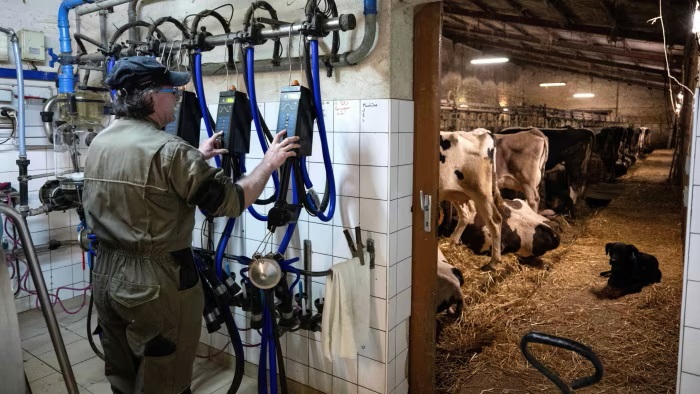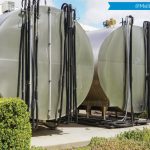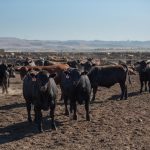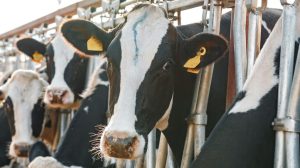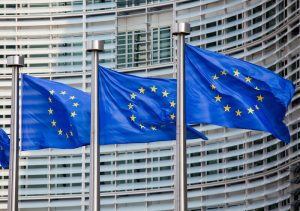
Report suggests basing Common Agricultural Policy payments on income not acreage and calls for curbing meat production.
The EU should undertake a major overhaul of its €387bn Common Agricultural Policy to subsidise farmers based on their income rather than the size of their farms, according to a report commissioned by Brussels in response to violent farmers’ protests.
The recommendations will be presented to European Commission president Ursula von der Leyen on Wednesday. They follow consultations among farmers, NGOs, consumer and food retailers that culminated in three marathon day-and-night negotiating sessions last week, underlining deeply divided opinions over the future of farming.
“Business as usual is not an option,” said a draft of the report from the so-called Strategic Dialogues on the Future of EU Agriculture, seen by the Financial Times. “Bold and swift action at all levels is needed” to tackle the “multiple crises” affecting farmers, including increased impacts from extreme weather such as drought, from inflation and from low-cost global competitors.
Among the recommendations of the final report are schemes to encourage consumers to cut their meat intake and to help farmers move away from livestock farming, including a controversial suggestion to introduce voluntary buyout schemes for farms in areas with high levels of intensive animal farming, according to three people involved in the process.
The most significant proposal is a major overhaul of the EU’s CAP subsidy scheme, which was first launched in 1962 and consumes a third of the bloc’s multiannual budget.
Instead of allocating direct support to farmers according to the amount of land they own and linking that to mandatory environmental standards, the report recommends that subsidies should go “solely to farmers that need it most” on a means-tested basis, according to the people involved.
The dialogues were announced by von der Leyen as part of a pitch to farmers by her centre-right European People’s party ahead of EU elections in June, given that rural voters seemed to be turning to more fringe political groups.
“For us in Europe, this task of agriculture — producing healthy food — is the foundation of our agricultural policy,” she said when announcing the dialogue process in September last year.
The report has been overseen by German academic Prof Peter Strohschneider, who chaired a similar consultation in Germany in 2021. The draft could be subject to change following the final negotiations.
EU officials have said that the report should shape agricultural policy in the new commission, which is due to start sitting later this year, but its recommendations are not binding.
“The real main feature is a commitment towards change and towards the [climate] transition. There is a joint agreement by everyone — by farmers, retailers, consumers — that things need to change. That on its own is a paradigm shift,” said one person involved in drafting the report.
The current environmental standards within the CAP were temporarily jettisoned by the commission after farmers’ protests throughout the spring of this year that saw tyres burnt, statues toppled outside the European parliament and manure spread over the streets of EU capitals.
Green campaign groups including ClientEarth and Birdlife made a complaint to the European Ombudsman in July, claiming that the removal of environmental standards had been done through a “closed doors” process and was “unprecedented and undemocratic”.
The report proposes that farmers receive incentives within the CAP to green their practices, as well as from a “Just Transition Fund” that is outside the CAP budget and is dedicated to longer-term changes such as converting farms to “regenerative” or organic methods, according to the people involved.
The commission declined to comment.
Food production and distribution are responsible for between 21 and 37 per cent of greenhouse gas emissions depending on the criteria measured, according to the Intergovernmental Panel on Climate Change. Over half of those emissions come from livestock farming.
Despite this, agriculture remains one of the last sectors in the EU without an overarching target for reducing greenhouse gas emissions, as the bloc tries to overhaul its economy in an effort to reach net zero emissions by 2050.
Decarbonising the farm sector has proved deeply controversial thanks to pressure from the agricultural lobby and this year’s protests. In February, Brussels removed specific mention of emissions reduction targets for farming from a major document mapping out the bloc’s pathway to net zero.
You can now read the most important #news on #eDairyNews #Whatsapp channels!!!
🇺🇸 eDairy News INGLÊS: https://whatsapp.com/channel/0029VaKsjzGDTkJyIN6hcP1K
